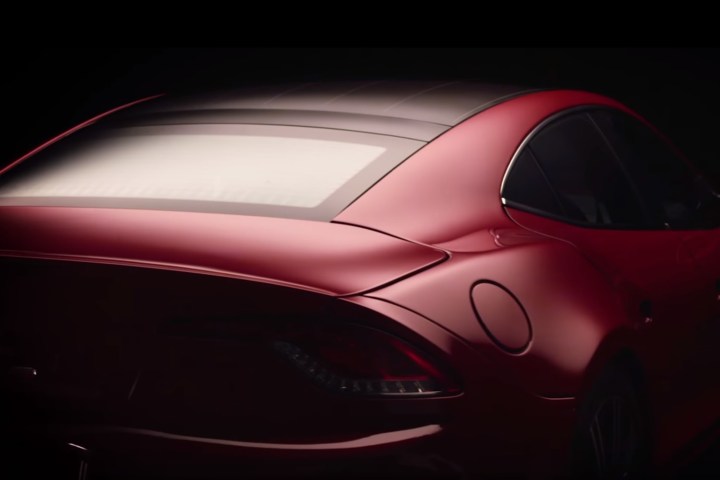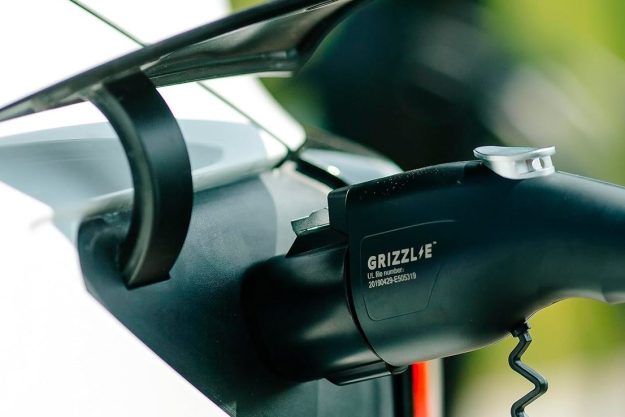
The Revero was born from the scattered ashes of the Fisker Karma, a luxurious gasoline-electric sedan sold in strictly limited numbers in 2011 and 2012. At first glance, it looks like the aesthetic differences between the Revero and the Karma are minor at best. Careful observers will point out the Revero features new emblems — which are hand-painted, according to the company — a revised grille, new-look headlights, and new alloy wheel designs. Pictures of the rear end aren’t available yet.
Like its Fisker-badged predecessor, the Revero will get a gasoline-electric plug-in hybrid drivetrain capable of running on electricity alone for approximately 50 miles, which is enough to cover many motorists’ daily commute. The drivetrain will allegedly use components purchased from the BMW parts bin, though Karma isn’t ready to divulge more specific technical details.
Interestingly, the Revero boasts a large, roof-mounted solar panel that generates enough energy to charge the car. Many cars have offered roof-mounted solar panels in the past, including the Toyota Prius in Japan, but they’ve typically generated enough juice only to run the A/C while parked in the scorching sun. If Karma’s claim is true, the Revero will be revolutionary because it will be the first truly cordless electric model on the market.
Read more: Mamma mia! Fiat could launch a “copy” of the Tesla Model 3 with a more Italian look
The company’s teaser material shows the Revero’s cabin is fitted with carbon fiber trim and a brand new infotainment system that’s ambitiously billed as simple, intuitive, and beautiful. The original Karma was a four-seater, and it’s safe to assume that the born-again model offers the same configuration.
Karma executives openly admit they’re aiming for Tesla.
“We think we’re in Tesla’s court. If it was just about style, we would only go head to head with Aston Martin and Maserati. But these buyers are also interested in the technology,” affirmed Jim Taylor, the company’s chief revenue officer, in an interview with Automotive News.
Karma will assemble the Revero in a facility located in California, a stone’s throw from the Tesla factory. And while the company hasn’t disclosed sales projections yet, its promotional material strongly suggests the Revero will be a low-volume niche model.
“No one needs a product like this to get from point A to point B. We exist for those who have to have one. There are plenty of exceptional cars out there for the rest of you,” the company’s official website states.
The Karma Revero will make its official debut during a private event held next month. The car will go on sale shortly after, and Karma has previously announced plans to sell cars through privately owned store, a strategy pioneered by Tesla, as well as through traditional dealerships. While official pricing information hasn’t been announced yet, the “build-it-and-they’ll-come” approach the brand is taking leads us to believe the Revero won’t be cheap.
Editors' Recommendations
- 2020 Karma Revero GTS adds performance to go with its sleek looks
- This Karma Revero plug-in hybrid’s audio system took more than 2 years to design




